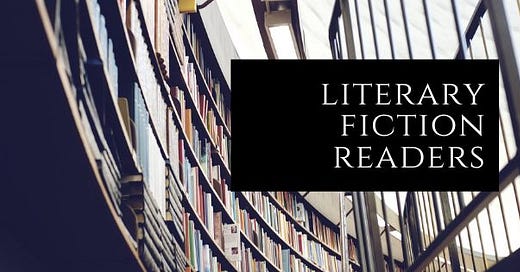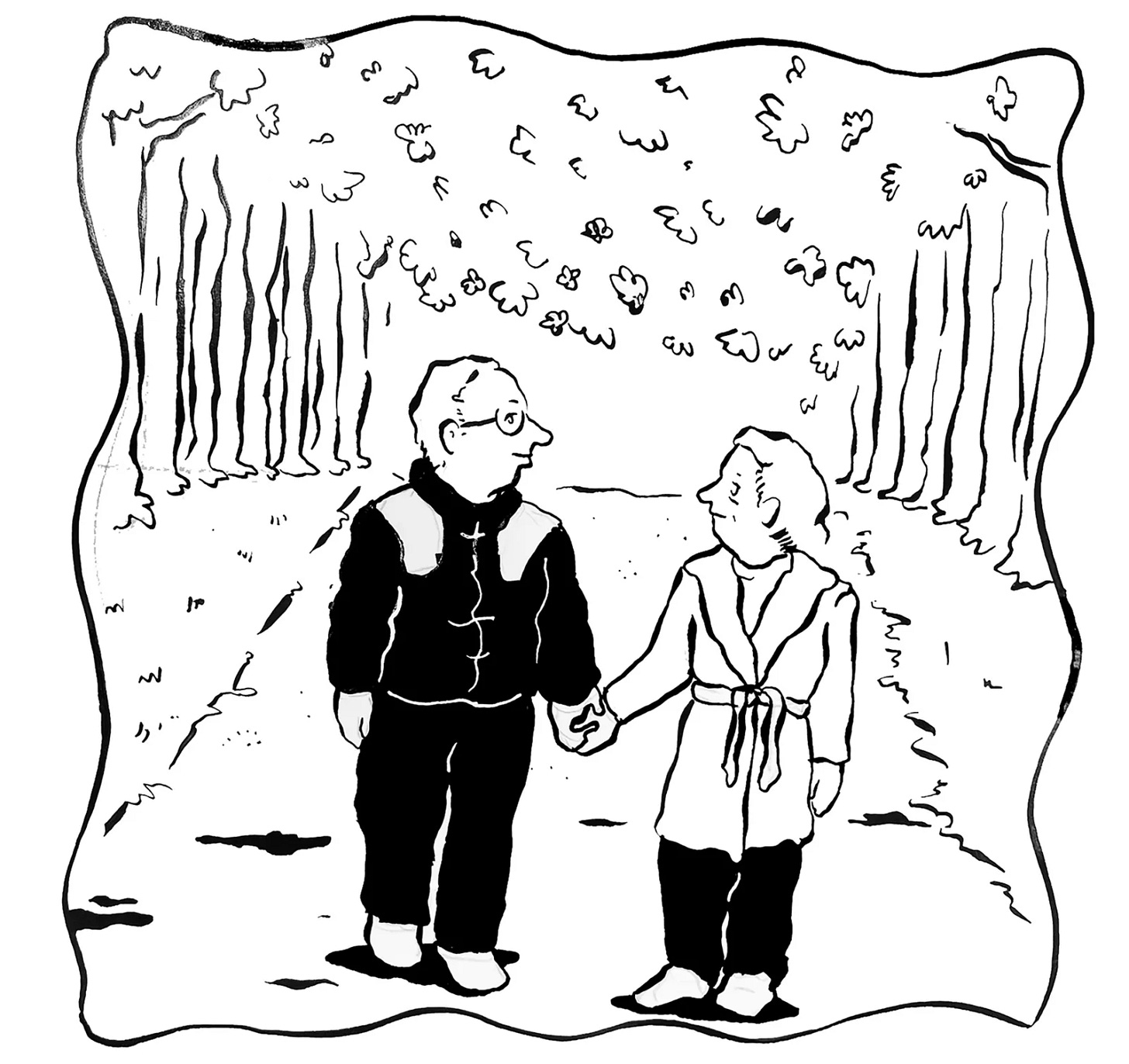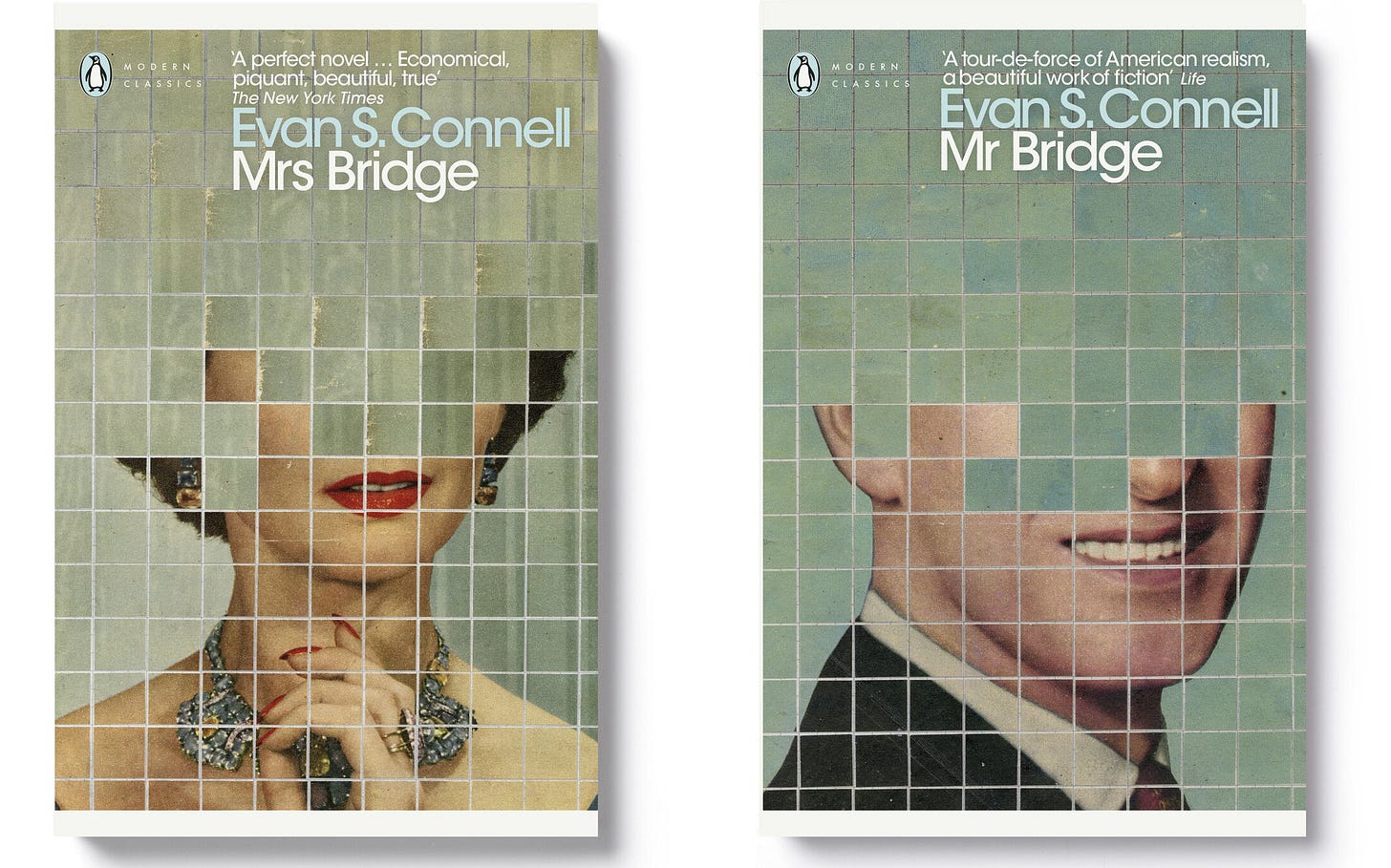About today’s list [1]:
Asked my cohort at the Facebook’s Literary Fiction Readers1 for fiction featuring long marriages/romantic partnerships. They responded abundantly—over four dozen titles, and less overlap than you’d expect.
Here’s three titles I weeded out, and why:
Tom Lake (2023), Ann Patchett’s pandemic novel. There’s a marriage long enough to have produced two grown daughters, who shelter with their parents at the family orchard in Michigan; the mother is persuaded to unfold the story of acting in summer stock alongside a now-famous actor. It’s an amiable read2 . . . but not really about a long marriage.
The Marriage Portrait, (2022). People seem to think highly of this one, Maggie O’Farrell’s evocation of Lucrezia de’ Medici’s life in Renaissance Florence—O’Farrell is, after all, the author of Hamnet (2020), among many others. But, again, the marriage is only one element in a complex tapestry.
To the Lighthouse (1927), Virginia Woolf'‘s masterpiece, firmly slotted in my Hall of Fame. Embedded in it is the long marriage of the Ramsays, but to my mind, it’s a novel about the passage of time, about the texture of moments within a life.
About today’s list [2]: What else isn’t here
Omitting a handful of others that fit the bill quite well . . . but are downers—each an excellent work you should read, but which I can’t bring myself to talk about this September morning:
Stoner, John Williams (1965)3
Who’s Afraid of Virginia Woolf? [play], Edward Albee (1962)4
Ethan Frome, Edith Wharton (1911)5
About today’s list [3]: Two sets of novels that deserve their own shelf
—Evan S. Connell’s Bridge novels6
Mr. Bridge (1969)
Mrs. Bridge (1959)
—John Updike’s The Rabbit Quartet (1960-1990) 7 8
Rabbit at Rest (1990)9
Rabbit Is Rich (1981)
Rabbit Redux (1971)
Rabbit, Run (1960)
TWENTY-SOME BOOKS ABOUT OLD MARRIAGES/COUPLEDOMS
[Assembled from suggestions/recommendations/poking about. Most lists on this Substack have more titles from my own reading—I’ve read only four of these [*], plus some of the Trollopes.
If you’d like to vouch for any here, don’t be shy.]
Today a Woman Went Mad in the Supermarket [stories], Hilma Wolitzer (2022)
Nora, Nuala O'Connor (2021)10 [Ireland]
Monogamy, Sue Miller (2020)
The Motion of the Body Through Space, Lionel Shriver (2020)
Midwinter Break, Bernard MacLaverty (2017)11 [Northern Ireland]
The Course of Love, Alain de Botton (2016) [Switzerland/U.K.]
The Turner House, Angela Flournoy (2015)
*A Spool of Blue Thread, Anne Tyler (2015)12
Fates and Furies, Lauren Groff (2015)13
The Children Act, Ian McEwan (2014)14
Just Send Me Word: A True Story of Love and Survival in a Gulag [nonfiction], Orlando Figes [U.K.] (2012)
Ghana Must Go, Taiye Selasi (2013)15 [U.K.]
I Married You for Happiness, Lily Tuck (2011)16
Gertrude and Alice [biography], Diana Souhami (2009)17 [U.K.]
The Maytrees, Annie Dillard (2007)18
Two Lives [memoir/biography], Vikram Seth (2006) [India]
Ethel & Ernest: A True Story [graphic novel], Raymond Briggs (1998)
*Crossing to Safety, Wallace Stegner (1987)
*Love in the Time of Cholera, Gabriel Garcia Marquez (1985) [Colombia]
The Long View, Elizabeth Jane Howard (1956)19
The Tree of Man, Patrick White (1956) [Australia]20
*Forbidden Notebook, Alba de Céspedes (1952) [Italy/Cuba]21
Greengates, R. C. Sherriff (1936)22 [U.K.]
Plantagenet and Glencora Palliser, woven into the fabric of ten Anthony Trollope novels.23
One more note:
Today’s list is too thin on non-hetero couples. Here are two sites to investigate:
https://electricliterature.com/8-novels-about-complicated-queer-relationships/
https://bookriot.com/queer-literary-fiction/
The Reading Project/Challenge:
Over the course of the next year:
a) Read one from the Bridge/Rabbit List and/or Main List each month (12 books).
b) Or one every two months (6 books).
Optional: Tell us about it.
Some pertinent links:
https://lithub.com/romance-finely-aged-on-the-unique-dynamic-of-older-couples/
https://www.theguardian.com/books/2016/aug/17/top-10-books-about-long-marriages
https://elifthereader.com/prettythings/20-beautiful-novels-abo
https://www.goodreads.com/list/show/24754.Reconciled_Marriage_Novels
https://ask.metafilter.com/177641/Scenes-From-a-Marriage
https://en.wikipedia.org/wiki/The_Maytrees
https://www.nytimes.com/2015/02/15/books/review/what-is-the-best-portrayal-of-a-marriage-in-literature.html
[drawing by Mads Horwath]
Birth Year Project:
You supply your birth year, I respond with a short list of books published that year—the popular/well-known titles first, then some books I'd recommend. If your year's already been done, I'll do an update. So far, we’ve done 17 years altogether, between 1944 and 1989. [See BYP Index in navigation bar.]
Extra credit: You read one of the books (ideally one you're unfamiliar with), then tell me what you thought. If we get enough of these, I'll aggregate and post.
Literary Fiction Readers: Private but joinable. Well moderated, well focused.
https://www.facebook.com/groups/litfic
Patchett: I hope that doesn’t sound like damning with faint praise. I read it with pleasure—it’s just not my fave, which is Commonwealth (2016).
Stoner:
https://en.wikipedia.org/wiki/Stoner_(novel)Albee: Ever see the film? Liz, Richard, George, Sandy. I used the word “gut-punch” in the previous Reading Project post . . . how about “soul-curdling” for this one?
Ethan Frome: This slim novel is a cold-hearted killer. We associate Wharton with old New York, but this one’s pure New England. It, too, is in my Hall of Fame.
The Bridges: These novels feel less strangely constructed (more au courant?) than they must’ve 60-70 years ago. They’re made of precise non-continuous chapters of a page or two or three—reading them feels like working through a batch of old Polaroids. What strikes me as most curious is that this is the same guy who wrote the nonfiction classic, Son of the Morning Star: Custer and The Little Bighorn (1984). In any case, scads of our best fiction writers revere these two novels (I only regret that I was so far along in my reading/writing life before I heard of them).
You’re welcome.
Updike: He was among the elite of American literary writers for half a century, but I fear he’s already slipping from our awareness. Three thoughts on that:
a) It happens to almost everyone.
b) As with other big male novelists of his generation, the radical shift in the sexual zeitgeist over the past decade (or two) has made his work seem antediluvian, tainted [please read John Macdougall’s blog post about Patricia Lockwood’s piece on Updike:
http://thenewyorkerandme.blogspot.com/2019/11/patricia-lockwood-on-john-updike.html].
c) He wrote too much! Since his first book in 1959, he published at least one book a year—novels, story collections, essay compendia, poetry collections, art criticism, sports commentary, memoirs, etc. Some of the novel subjects seem ill-considered IMHO—not worth doing, not his to do? But the main problem is over-saturation. With Fitzgerald it’s easy to say, Gatsby. With Updike you have the Rabbit books, yes, but the sheer volume of other stuff makes the picture fuzzy.
This note could go on for pages, since Updike was a major influence on my writing craft—not his subjects, but his sentences. And his sentences were on best display in his short stories. He wrote a ton of them and they were really good—it would be a gross outcome if Updike is “cancelled” to the point where his stories go unread. He and Alice Munro and few others set the standard (more on the Munro tragedy in a later post). I realize that Updike’s sentences can seem too fussy, too given to the finest distinctions between things, but never mind—every story writer can learn from a close look at their architecture, their leaps of thought, their (at times) squirmy candor.
His story, “Deaths of Distant Friends” [in Trust Me (1987)], has the most amazing last paragraph—I often used it teaching.
Still Updike: Well, used up too much space with the foregoing. So, two quick points about the Rabbit books:
a) They are written in third-person, but this voice is saturated with Rabbit’s persona (as I noted in an earlier post, I tend to remember them as first-person). Rabbit is an Everyman, but one who embodies attitudes and emotional shortcomings and stubborn/frustrating limitations—he’s neither hero nor anti-hero. But my point is that he is a construction, he is not Updike. And—as a construction—he exemplifies what William Gass calls “a bright human image.” The image is bright even if the character is an imperfect human.
b) Updike’s four-book depiction of Rabbit and wife Janice’s coupledom is an amazingly detailed construction, from Rabbit’s youth as local basketball phenom to his eventual death. I wasn’t wild about Rabbit Redux—but the following two deepen Janice’s story.
Rabbit at Rest: In 2001, Updike published the story collection, Licks of Love, which also contains a novella-sized coda, Rabbit Remembered.
Nora: Novel about Nora Barnacle and James Joyce.
https://nualaoconnor.com/home/novels/nora/
MacLaverty: He wrote the slim heartbreaker, Cal (1983). The film was released in 1984, featuring a soundtrack by Mark Knopfler (not to be missed).
Tyler: This is what Jane Rogers (Conrad and Eleanor, 2016) says about A Spool of Blue Thread in the Guardian’s Top Ten Novels About Long Marriages [see list of links]:
Tyler often writes about marriage, and always writes true. The first 10 pages of this novel are almost entirely dialogue and reveal Abby and Red Whitshank brilliantly. They are arguing helplessly over how to handle a phone call from their son Denny announcing he is gay. Abby theorises that his getting a girl into trouble while he was still at school might have been a symptom of homosexuality. Red asks, “Come again?” “We can never know with absolute certainty what another person’s sex life is like.” “No, thank God.” Their love for one another is as comfortable and worn as the old slippers and colourless dressing gown each wears.
Groff: A dynamo, one of my new favorite writers, though I have yet to read this one. TBR list.
[Finalist for the National Book Award, Finalist for the National Book Critics Circle Prize,
Finalist for the Kirkus Prize, Winner of the Madame Figaro Grand Prix le l’Héroïne, Winner of the American Booksellers’ Association Award for Adult Fiction, NPR’s Morning Edition Book Club Pick, New York Times Bestseller and Notable Book of 2015, Foreign rights sold in 30+ countries.]
McEwan: From the recommender:
McEwan very cleverly reveals just how much the turmoil in Fiona’s marriage is affecting her work as a high court judge. The economy and precision of the writing enable us to glimpse quite vividly her husband’s side of the story, and indeed the whole history of their 35-year-old marriage.
Ghana Must Go:
https://en.wikipedia.org/wiki/Taiye_Selasi
Tuck: Widely praised, a Best Book of the Year at multiple newspapers.
https://en.wikipedia.org/wiki/Lily_Tuck
Gertrude and Alice: Stein, Toklas.
https://en.wikipedia.org/wiki/Gertrude_and_Alice
[Another contributor recommended Barbara Kingsolver’s, Lacuna (2009) a novel about Diego Rivera and Frida Kahlo.]
Maytrees:
https://en.wikipedia.org/wiki/The_Maytrees\
The Long View: From the recommender:
A brilliant depiction of a long marriage; a husband who is extraordinarily manipulative, and a wife who to some degree goes along with that. Howard uses both characters' perspectives and so both have their dignity, even when behaving despicably. She covers 30-odd years of marriage. Heartbreaking.
Patrick White:
https://en.wikipedia.org/wiki/The_Tree_of_Man
Cholera: I read this many years ago; I was much taken with Garcia Marquez at the time—I was still at a point where I seldom interrogated the work of those I considered masters. For instance, I waded into his The Autumn of the Patriarch (1976) multiple times without even getting halfway, but blamed my inferior mental toughness in the face of a challenging work.
When I read Love in the Time of Cholera I was well into having my consciousness raised [as we called it in those days] about feminism, rape culture, patriarchy, etc. Yet, I must have read past the material in this novel that certain readers castigate Garcia Marquez for today. Did I not recognize it? Or did I give it a pass because it was literature? Or is it that the climate of the debate around sexual ethics has become so much hotter? Where do we position ourselves with regard to “cancellation”? Do we champion readers who call out works of art that glorify what they believe is abuse? Do we praise them for “taking off rose-colored glasses,” “telling it like it is,” saying no to gaslighting?
Or do we cringe? Does this kind of reading remind us of the McCarthy era/Soviet era/Puritanism/Salem Witch Trials? Do we remember how upright Bible-belt teenagers burned Beatles records in the town square? Do we fear winding up in the world of 1984?
[Note: In case you don’t remember that Beatles business: In a press conference (in England), John Lennon said the group was “more popular than Jesus”—he was reacting, off the cuff, to the insanity of their fame; he wasn’t saying he, or his bandmates, thought they were more important than Christianity. Ah, but never underestimate the tin-earred sanctimony of true believers, or the ease with which it can be whipped up by demagogues.]
Or are we conflicted? Can we hold a quantum view on this? I favor this last one—isn’t it what Keats called negative capability? But it’s been so long since I’ve read this novel I have no idea how I’d react now (and I doubt I’ll re-read it to find out).
Here’s a page at Goodreads that includes some of the “calling out” I mention. And, if this issue interests you, you can surely find more with a little digging.
https://www.goodreads.com/en/book/show/9712.Love_in_the_Time_of_Cholera
Forbidden Notebook: I wrote about this novel in the post Birth Year Project: 1952.
https://longd.substack.com/p/birth-year-project-1952 [footnote 10]
Sherriff: I found this writer in the catalog for Persephone Books, subject of Reading Projects [10]:
https://longd.substack.com/p/reading-projects-10-persephone-books
And there’s a footnote about his sci-fi novel, The Hopkins Manuscript, here:
https://longd.substack.com/p/ship-of-fools
Here’s note about Greengates lifted from Goodreads:
A man retires from his job but finds that never were truer words said than ‘for better, for worse but not for lunch’. His boredom, his wife’s (suppressed and confused) dismay at the quiet orderliness of her life being destroyed, their growing tension with each other, is beautifully and kindly described. Then one day they do something they used to do more often – leave St John’s Wood and go out into the countryside for the day. And that walk changes their lives forever: they see a house for sale, decide to move there, and the nub of the book is a description of their leaving London, the move, and the new life they create for themselves.








Haven’t read any of these books, and certainly have never heard of the Rabbit Quartet. The name itself intrigues me enough to explore further!
I couldn’t get into Monogamy, and it’s been so long since I read Fates and Furies I can barely remember it other than there was a marriage!